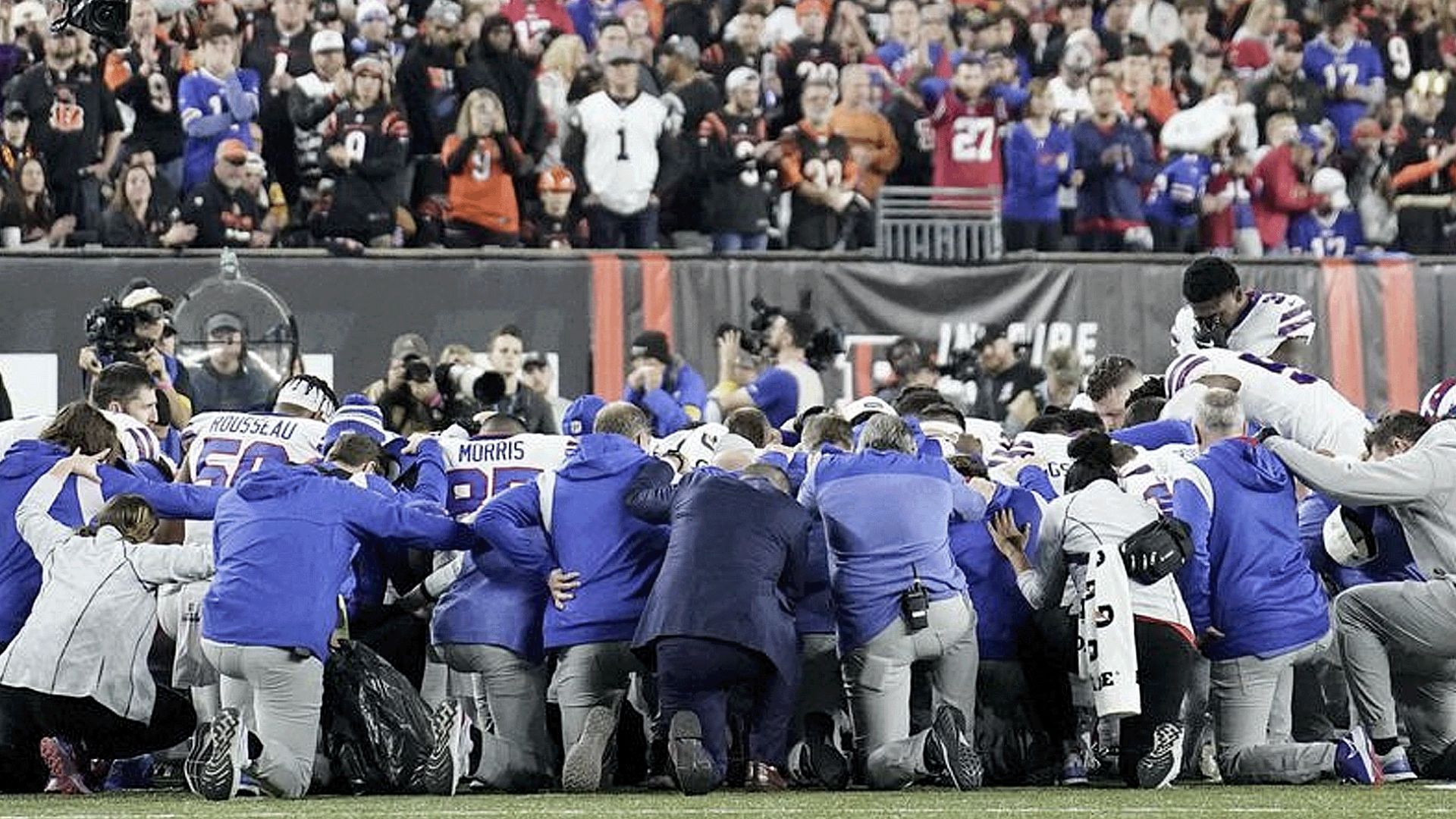An odd feature of the human experience is how shocked we are by death. We really shouldn’t be. It happens all the time, all around us. It's one of the few things we can consistently rely on.
But there are those moments when our fragility is exposed in visceral ways, like when 24-year-old, world-class NFL athlete Damar Hamlin suffered a cardiac arrest on the field mid-game.
Players and coaches helplessly stared into the distance, tears streaming down their faces, lips muttering prayers. The 60 thousand-plus people in attendance sat in stunned silence, likewise immobilized by what they were witnessing.
A billion-dollar, well-oil production machine had no script for a moment like this. Normally articulate and smooth, announcers stumbled through their words. The usual chorus of “thoughts and prayers” filled every social media feed, but it didn’t feel like enough this time. This was different.
Former NFL Quarterback, and current ESPN Analyst Dan Orlovsky, gave a voice to the difference. As he held back his emotions, he broke protocol and said, “I don’t know if this is the right thing to do, but I am going to pray right now, out loud,” and he did. It wasn’t smooth, but it was real, and it was obvious that regardless of how people might perceive it, he didn’t care.
Just before, he mentioned how all day long he’d heard people offering up “thoughts and prayers” - the well-meaning but often platitudinal and religiously vague response from the masses during tragic times. It was clear that for him, cliches would not cut it, not for this. The situation was too dire, the need too real, so he prayed.
More than a week later, Damar Hamlin has made remarkable progress. Thank God. But before we move on, let’s talk about two things this tragic situation revealed that we need to dwell on and learn from.
1. Count your days.
The most obvious takeaway is that life is short, and we would do well to know it. And yet, our reaction to tragedies like this proves that psychologically, it’s not obvious. The Bible knew it wouldn’t be. There are repeated warnings and encouragements throughout to recognize how short our lives are.
Psalm 103:15-16 warns, “Our days on earth are like grass; like wildflowers, we bloom and die. The wind blows, and we are gone — as though we had never been here.”
James famously says, “Why, you do not even know what will happen tomorrow. What is your life? You are a mist that appears for a little while and then vanishes.” (James 4:14).
There is tremendous wisdom in recognizing how fleeting and fragile our lives are. What happened to Damar Hamlin can feel like the exception, not the rule, but for everyone at some point, it is the rule. Unless you know you are dying, can you really live? Not well and not for the right things, and certainly not with a proper sense of urgency.
2. Be Bold
Knowing life is short, should then produce boldness. For Dan Orlovsky, at that moment, human words and solutions were not sufficient. Damar’s situation required supernatural intervention, and the urgency of what happened trumped his sense of protocol and etiquette. When it’s a matter of life and death, there’s no time for “no religion or politics” sentiments.
The truth is, things are always dire and urgent. Every person you meet will face their own mortality. This should not make us fearful or anxious, but it should spur us on to boldness in sharing our faith regardless of the rules and norms of our context - it's simply too important to be silent.
Even as I write this, the shock has passed, and the world has moved on. But soon enough, another tragedy will strike. Once again, we will be shocked, and thoughts and prayers will be offered up before we once again settle back to our default denial of death.
My prayer is that we would remain sober-minded and vigilant, and that our whole life’s posture would be urgent, because life is short, and we don’t get to know who's next.
Want to listen to the full conversation? Listen to Episode 460: What Damar Hamlin's Cardiac Arrest Should Teach All of Us!



